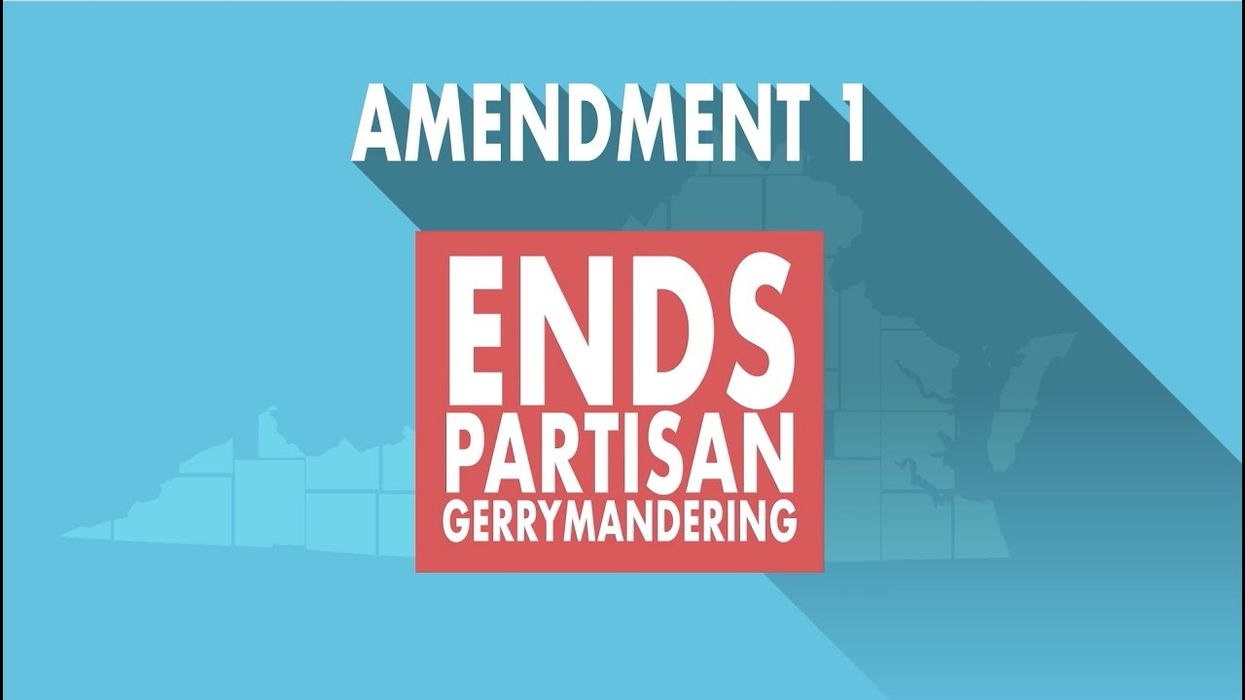Rudensky and Li are attorneys in the Democracy Program of the Brennan Center for Justice, a progressive think tank at New York University Law School.
Voters in Virginia have a chance to create the first redistricting commission in the South a week from now.
To be sure, more work will need to be done to make sure the measure on the ballot, Amendment 1, lives up to its full potential. But its approval would be a historic step forward for fair maps in a state plagued by a history of discriminatory maps.
Currently, congressional and legislative district boundaries for Virginia are drawn through the ordinary legislative process — meaning new maps must be approved by both halves of the General Assembly before being sent to the governor for signature or veto. In the past, this process has opened the door wide to gerrymandering, by giving a blank check to any political party that happens to control both houses of the Legislature and the governor's mansion when redistricting happens after the first election of each new decade.
In 2011, for example, Republicans used control of the process to push through a racially gerrymandered congressional map that diluted the power of the state's Black communities and was later struck down by courts.
Amendment 1 would improve the process by transferring map-drawing responsibility to a 16-member bipartisan commission consisting of eight lawmakers and eight citizens. If its maps are approved by a bipartisan supermajority, they would then go to the statehouse in Richmond for approval. Should the commission fail to complete maps with such broad support, the Virginia Supreme Court would step in to draw the lines.
And importantly, Amendment 1 wouldn't operate in isolation. A new state law has established map-drawing rules aimed at keeping communities together and curbing both racial and partisan gerrymandering — abuses that have long plagued Virginia. Other guardrail measures, such as guidelines for selecting commissioners and rules for the state's high court to follow in case of a deadlock, could also be established next year should Amendment 1 win approval now.
In tandem with the right guiding legislation, Amendment 1 would be an important improvement. Instead of a single party controlling the mapmaking, districts would be set either through bipartisan compromise or by the courts. In either case, as our research has found, the boundaries will almost certainly be much fairer.
Bipartisan commissions and courts may not produce maps as good as those of independent commissions. But, on the whole, they do not produce racially or politically gerrymandered ones, either.
Despite the better process promised by Amendment 1, however, some reformers are critical. They say the ballot measure doesn't go far enough in taking lawmakers out of the picture. This desire for a fully independent panel is understandable. But it is worth remembering that the alternative to adopting the proposal on the ballot in November is neither independent nor stronger reform. It is the status quo, driven by legislators, meaning the long road to redistricting reform would need to start anew.
This matters because — unlike California, Michigan and other states that have adopted more robust reforms — Virginia does not have a citizen-led process for putting measures on the ballot while sidestepping the Legislature. Any proposal for more independent redistricting reform would have to be approved in Richmond — not just once, but in two successive legislative sessions, before going to the voters for approval. Put simply, there is no assurance that today's pro-reform legislative majority will be there in future.
Moreover, legislators across the country have proven very reluctant to cede power to a robust and fully independent commission. Indeed, both last year and this year, Democrats and Republicans in the Virginia General Assembly rejected proposals that would have produced greater independence in the redistricting process.
In contrast, adopting Amendment 1 would help change the political landscape in ways favorable to future reform efforts. It would establish a new status quo, where redistricting outside the statehouse is normalized and an unchecked process driven by lawmakers is no longer possible.
This is a much more favorable starting point for establishing fully independent redistricting, because legislators would not be protecting a status quo that gives them a monopoly on map-drawing.
Undeniably, Amendment 1 can be built upon and improved. But starting from midfield is a stronger position than starting from your own one-yard line. Reformers should embrace adoption of this ballot measure as an important and, perhaps, indispensable win in the long fight for independent redistricting.



















